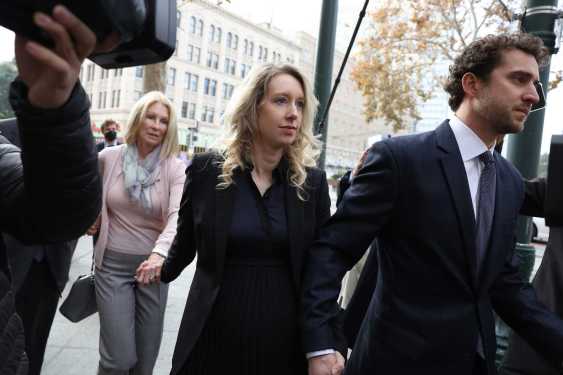A High-Profile Case Comes to a Close
Elizabeth Holmes, the former CEO of the now-defunct biotech company Theranos, is expected to begin serving her prison sentence on April 27. The sentencing stems from her conviction on four counts of fraud last year, which carries a sentence of more than 11 years.
Attempts to Delay Incarceration Fall Short
After being found guilty, Holmes’ lawyers made multiple attempts to delay her incarceration. One such attempt was through petitioning for a new trial. However, Judge Edward Davila, who presided over the high-profile case, has denied these requests. In his decision, Davila stated that Holmes is not a flight risk or a threat to her community; however, he did not find substantial reason to keep her out of prison.
Appeal Likely Unsuccessful
Holmes’ lawyers are expected to appeal this ruling to the 9th Circuit Court. However, it’s unlikely that this appeal will be successful. The 9th Circuit has already rejected a similar appeal from former Theranos COO Ramesh ‘Sunny’ Balwani, who was found guilty on 12 counts of fraud.
The Rise and Fall of Theranos
Theranos was once a hot-shot Silicon Valley startup with a valuation of more than $9 billion. The company promised to revolutionize the medical field by making blood testing more accessible. In a now-infamous pitch, Theranos claimed that with just one drop of blood, it could conduct dozens of blood tests, rendering intravenous blood draws moot. However, despite its massive valuation and high-profile board members, the technology never worked.
The End of an Era
Now, the disgraced chief officers are preparing for prison. What can be learned from Theranos’ rise and fall? As we explore this question, it’s essential to understand the complexities of the case and the lessons that can be applied to future endeavors.
Theranos: A Cautionary Tale
Theranos is often cited as an example of how far entrepreneurship can go without substance. The company’s failure serves as a reminder of the importance of innovation, regulation, and accountability in the tech industry. As we examine the Theranos saga, it becomes clear that there are several key takeaways from this high-profile case.
The Intersection of Tech and Culture
At its core, the Theranos story is one of how technology can be used to deceive and manipulate. However, it’s also a reminder of the importance of understanding the cultural context in which we operate. As we navigate the complex intersection of tech and culture, it’s essential to consider the potential consequences of our actions.
The Role of Regulation
One of the primary reasons for Theranos’ downfall was its failure to comply with regulatory requirements. This highlights the need for effective regulation in the tech industry. By understanding the importance of regulation, we can work towards creating a more equitable and sustainable ecosystem.
Lessons from Theranos: What Can We Learn?
As we reflect on the Theranos saga, several lessons emerge:
- The Importance of Regulation: Effective regulation is crucial for preventing companies like Theranos from exploiting loopholes.
- The Consequences of Deception: The consequences of deception can be severe, as seen in Holmes’ conviction and sentencing.
- The Role of Culture: Understanding the cultural context in which we operate is essential for avoiding pitfalls like those faced by Theranos.
Conclusion
Elizabeth Holmes’ sentencing marks a significant milestone in the Theranos saga. As we move forward, it’s essential to reflect on the lessons that can be learned from this high-profile case. By understanding the complexities of the Theranos story and applying these takeaways to future endeavors, we can work towards creating a more equitable and sustainable ecosystem.
Recommended Reading
- "The Theranos Scandal: A Cautionary Tale for Entrepreneurs"
- "The Importance of Regulation in the Tech Industry"
- "Deception and Consequences: Lessons from Theranos"




